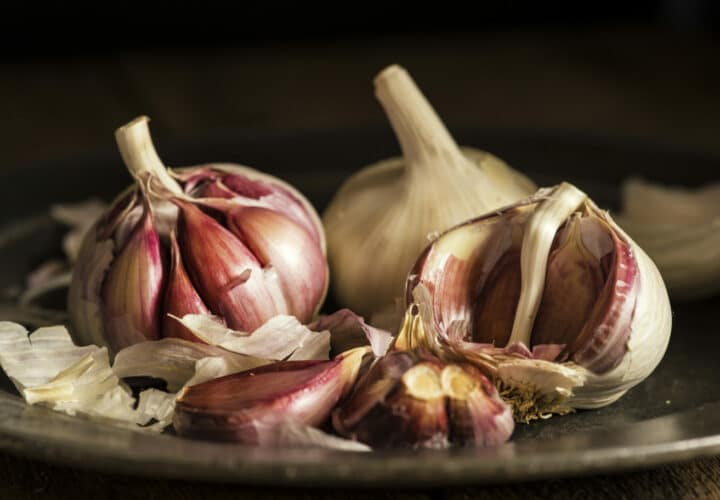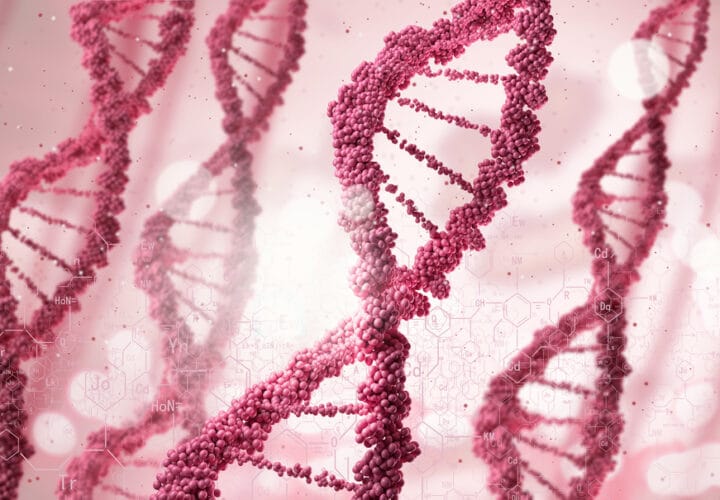Garlic’s list of health benefits is long; it’s naturally antimicrobial and can help fight infections, it has anti-inflammatory properties and studies suggest it helps protect the liver and lower blood sugar levels. And now, you can add staving off dementia to that list, too, according to a new study.
Raw Garlic and Memory
Scientists from the University of Louisville found that eating raw garlic could slow age-related memory loss experienced in diseases like Alzheimer’s and Parkinson’s.
“Our findings suggest that dietary administration of garlic containing allyl sulfide could help maintain healthy gut microorganisms and improve cognitive health in the elderly,” said Jyotirmaya Behera, Ph.D., who led the research team with Neetu Tyagi, Ph.D., both from the University of Louisville.
The Gut-Brain Connection
That’s right—garlic appears to help the brain by maintaining a healthy gut. Past studies have implicated gut bacteria in Alzheimer’s disease, finding that people with higher levels of certain substances—ammonia, indole, skatole and phenol—and lower levels of infection-clearing agents called Bacteroides were more likely to have dementia. We’re still learning about the gut-brain connection, but what happens in your gut may affect what happens in your brain—for better or worse.
For this study, scientists gave allyl sulfide—a metabolite of raw garlic and the compound responsible for the unique smell it imparts on the breath—to two-year-old mice, which is about the human equivalent of 56 to 69 years of age. They compared the mice who received the garlic compound with 4-month-old mice (about 20 t0 30 years old in human years) and two-year-old mice who did not receive any special dietary supplement.
They found that the older mice who were fed the garlic compound had better long- and short-term memory and spatial memory along with healthier gut bacteria than their counterparts.
When they looked more closely at the mice, they found that older mice without allyl sulfide added to their diets were lacking in neuronal-derived natriuretic factor (NDNF) in the brain. The recently discovered gene is key for making long- and short-term memories. The mice who did receive the garlic supplement had higher levels of NDNF expressed in their genes.
Allyl sulfide, it was found, produces hydrogen sulfide gas when it breaks down. That gas helps prevent intestinal inflammation in the gut.
“The diversity of the gut microbiota is diminished in elderly people, a life stage when neurodegenerative diseases such as Alzheimer’s and Parkinson’s develop and memory and cognitive abilities can decline,” said Tyagi. “We want to better understand how changes in the gut microbiota relate to aging-associated cognitive decline.”
The hope is that the compound could one day be used to prevent cognitive decline in older people. However, results from animal studies do not always translate to people.
Of course, adding a little more garlic to your diet won’t hurt you, but it’s not the only thing scientists recommend to prevent cognitive decline. Here’s a list of lifestyle changes you can make to lower your risk for dementia.



